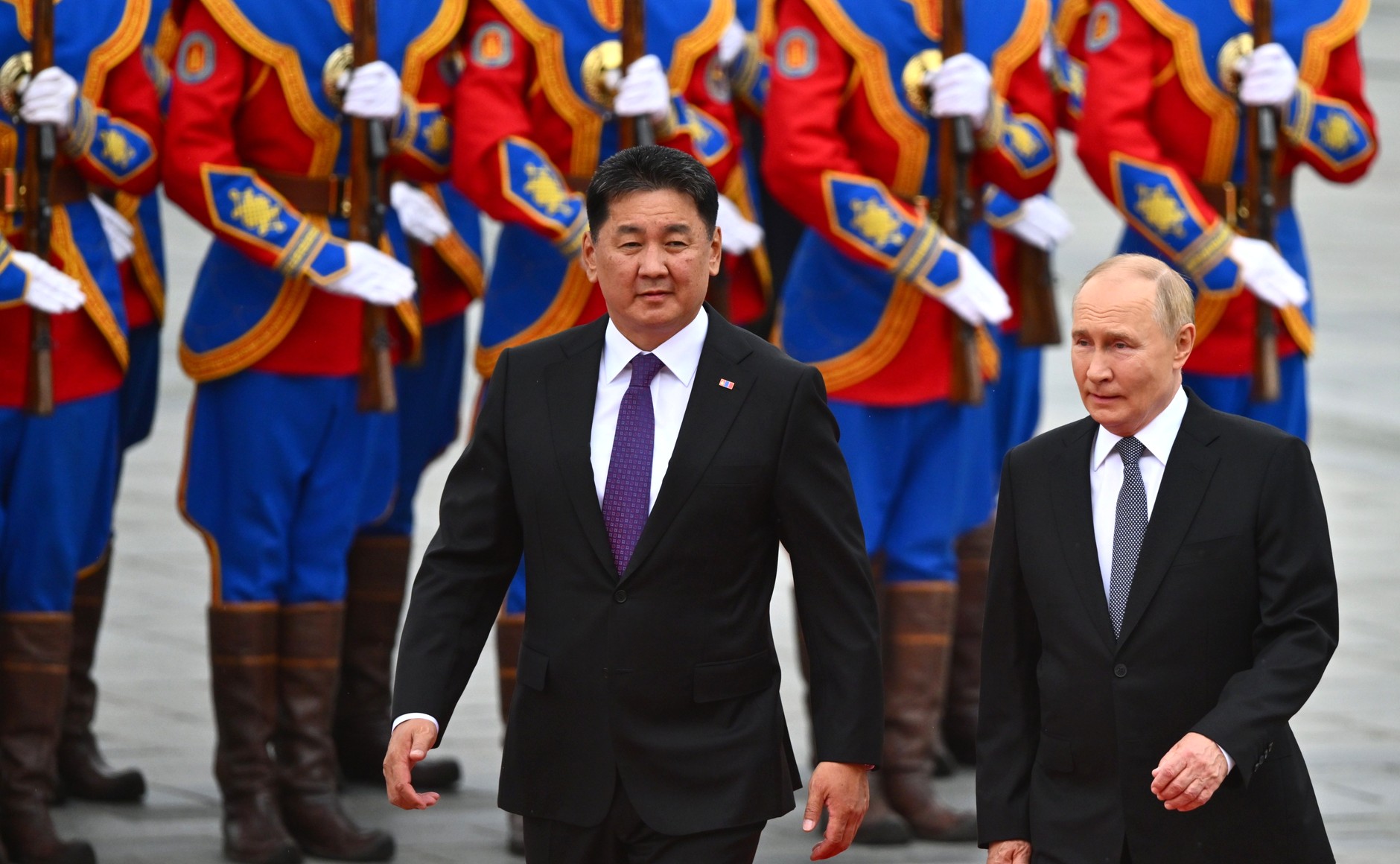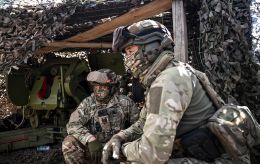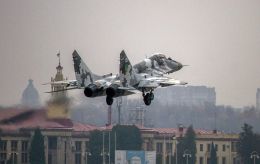Why Putin went to Mongolia and why country ignores ICC warrant: Expert opinion
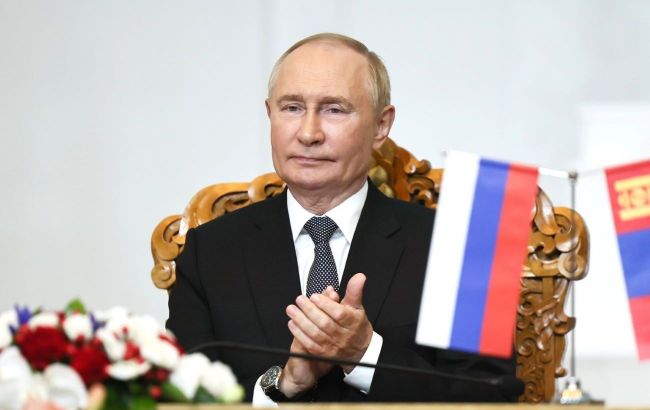 Russia's leader Vladimir Putin (Photo: Getty Images)
Russia's leader Vladimir Putin (Photo: Getty Images)
Russian leader Vladimir Putin is currently on a visit to Mongolia. This is his first trip since 2023 to a country that recognizes the jurisdiction of the International Criminal Court (ICC) and is formally obligated to arrest him under a warrant for war crimes in Ukraine.
RBC-Ukraine investigated why Putin went to Mongolia and why the country is ignoring the international warrant.
Contents:
- Political goals of Putin's visit to Mongolia
- Why Mongolia did not arrest Putin under the ICC warrant
- What could be the consequences for Mongolia
Political goals of Putin's visit to Mongolia
Putin's plane landed in the Mongolian capital on Monday evening. Instead of handcuffs, he was greeted with an honor guard and a walk down a red carpet. On Tuesday morning, an official meeting occurred with Mongolian President Ukhnaagiin Khürelsükh. After that, the leaders began negotiations in a yurt—a structure inside the state palace.
The program includes celebrating the 85th anniversary of the Soviet army's victory over Japan in 1939 at the Battle of Khalkhin Gol in Mongolia. Representatives of Russia and Mongolia are expected to sign some bilateral documents.
There are already some results from the visit. In particular, an agreement was signed on joint investments of up to $220 million in constructing a coal-fired power plant. It was also reported that the parties have almost finalized the technical aspects of a small nuclear power plant project in the New Kharkhorin area.
According to the Mongolian leader, Putin's visit is important for developing cooperation, particularly in energy matters. In response, the Russian dictator announced a shift to alternative currencies to the dollar and euro for transactions and promised to consider the possibility of supplying gas to consumers in Mongolia.
One of the topics discussed was the construction of the Power of Siberia-2 gas pipeline from Russia to China, a third of which is supposed to pass through Mongolian territory. According to Putin, the project is currently under review.
In addition, the President of Mongolia accepted an invitation to attend the BRICS summit, which will be held in October in Kazan, Russia.
Photo: Mongolian President Ukhnaagiin Khürelsükh and Vladimir Putin in Ulaanbaatar (kremlin.ru)
The current visit proves that Putin's total isolation is not yet a reality. Russia is facing isolation from Western countries and such US allies as Japan and Australia. However, many countries, primarily in the Global South, maintain neutrality concerning the Russia-Ukraine war, and Putin freely travels there, notes Alina Hrytsenko, a chief consultant at the National Institute for Strategic Studies.
According to her, Putin is taking advantage of all available opportunities, and his trip to Mongolia may pursue three political goals. First, to discredit the work of international legal institutions and show the Global South that international obligations are not as powerful.
Second, to demonstrate that there are countries willing to cooperate despite close ties with the West. Due to its geographical location, Mongolia seeks players who can balance Russia and China. This so-called "third neighbor" is the United States. Recently, contact with France has also intensified. The Mongolian president was recently received at the Élysée Palace for the first time.
"This is also very indicative. Mongolia is, in principle, a very attractive country in the context of resources, and everyone has visited there—even the Pope. The third task is to show the domestic audience that the 'brave president is not afraid of restrictions,' and to some extent distract them from the 'situation in the Kursk region,'" said Hrytsenko.
Why Mongolia did not arrest Putin under the ICC warrant
The main intrigue was whether the Mongolian authorities would dare to arrest Putin as demanded by the International Criminal Court (ICC).
In 2023, he did not attend the BRICS summit in South Africa, which ratified the Rome Statute, despite assurances from South African President Cyril Ramaphosa. Overall, since the beginning of the full-scale war, Putin has traveled abroad less frequently, and all the countries he has visited since the issuance of the arrest warrant for the illegal deportation of Ukrainian children do not recognize the ICC's jurisdiction.
In contrast, Mongolia completed the process of joining the International Court in 2002. Moreover, at the end of last year, a Mongolian judge was elected to the ICC for the first time, and the authorities spoke of increasing and strengthening the country's international reputation.
Like all participants in the Rome Statute, Mongolia is obligated to cooperate with the ICC, said court spokesman Fadi El Abdalla. However, there is no real mechanism to ensure the enforcement of warrants.
In the past, other individuals for whom warrants were issued did not face significant problems during foreign visits. For example, former Sudanese dictator Omar al-Bashir freely left South Africa in 2015 after an African Union summit. Two years later, the ICC found that South Africa had violated its obligations but did not bring the issue before the UN Security Council, which could have decided on sanctions.
On Monday, the European Union expressed concern that Mongolia might ignore the warrant for Putin. "Mongolia, like all other countries, has the right to develop its international relations according to its own interests," said European Commission spokeswoman Nabila Massrali, but added that Ulaanbaatar's position could have legal consequences.
As The Associated Press reports, more than 50 Russian political emigrants signed an open letter urging the Mongolian government to "immediately detain Vladimir Putin." Amnesty International and Human Rights Watch also joined the call. According to Bloomberg, the Mongolian government had previously promised not to arrest Putin.
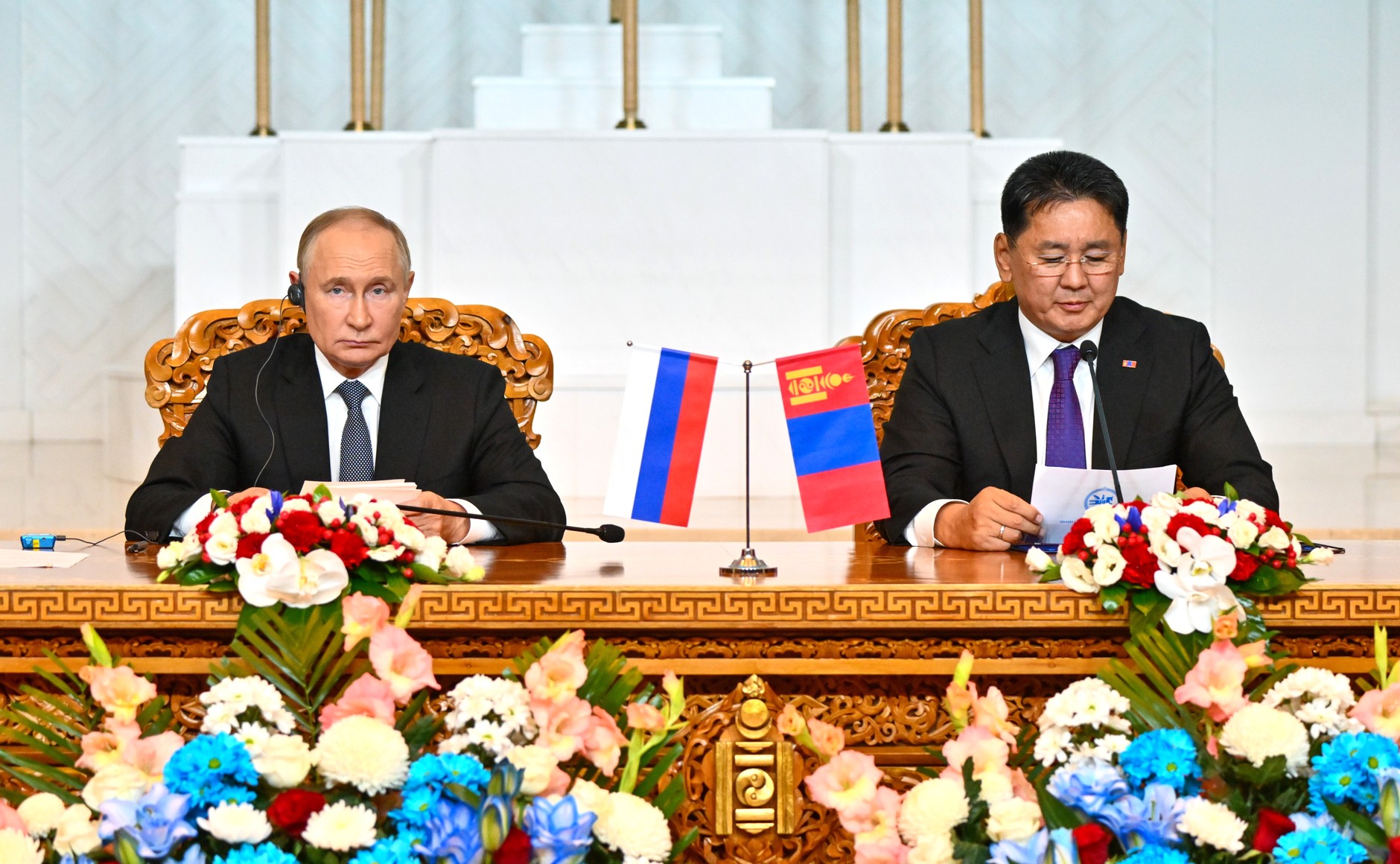
Photo: Putin signed several agreements with the Mongolian president (kremlin.ru)
The situation is intriguing, as no one forced the Mongolian president to invite Putin. However, it was unlikely that Ulaanbaatar would distance itself from Moscow. "This is a priori impossible. After all, they are neighboring countries with a long border. Moreover, Mongolia significantly relies on Russia economically, which cannot be changed due to geography," noted Hrytsenko in a conversation with RBC-Ukraine.
In addition, Mongolia maintains a policy of constant neutrality. "We are unlikely ever to see a reduction in ties with Russia, even political and diplomatic ones. For them, cooperation with Russia is a matter of national security," the expert emphasized.
Given the irrationality of the Russian leadership, one cannot entirely rule out, for example, border provocations. Of course, no one will open a "Mongolian front," but Russia can take any manipulative steps.
"I cannot imagine a situation in which they would decide to arrest Putin. Although the dynamics of cooperation have slowed since the late 1990s, Mongolia received less attention while Russia built neo-imperialist plans; the level of political trust remains quite stable," she added.
What could be the consequences for Mongolia
Ukraine predictably criticized Mongolia's position and demanded a response. MFA spokesperson Heorhii Tykhyi stated that the refusal to arrest Putin dealt a severe blow to the international justice system.
"Mongolia allowed an accused criminal to escape justice, thus sharing responsibility for the war crimes he committed. We will work with partners to ensure that this has consequences for Ulaanbaatar," he emphasized.
Politician, diplomat, and historian Roman Bezsmertny believes that the refusal to arrest the Russian dictator will have negative consequences. Complications in relations with the ICC could lead to the question of removing the Mongolian judge from the court and Mongolia itself from the Rome Statute, he noted in a comment to the RBC-Ukraine YouTube channel.
At the same time, he agrees that even if Putin were arrested, there would be problems with his delivery to The Hague. Mongolia is landlocked, surrounded by Russia on one side and China on the other. "Let's imagine a scenario (that they detained him, - ed.) - the question is, how to transport him further? Through China - they won't allow it, through Russia - even less so, there's no third way, and they haven't invented an underground route," he added.
Exclusion from the ICC would be appropriate, provided such a procedure exists. What is the point of Mongolia's participation if it does not fulfill its obligations, asks Alina Hrytsenko.
Another option is to break diplomatic relations. But in her opinion, this is an extreme measure, and it is unlikely that Ukraine should take such a step.
"Mongolia remains an interesting country for us; there are people and opportunities to work with. There is a relatively high level of support for Ukraine. There are representatives of the political elite who openly condemn Russia for the war. They even called on the Mongolian peoples of Russia - Buryats and Kalmyks - to avoid mobilization and promised asylum," the expert explained.
International sanctions could also be an option. However, Mongolia is interested in diversifying its foreign policy and economic relations, and attention from many countries has increased. France, after the coup in Niger, is looking for an alternative source of uranium for its nuclear power plants, and losing a potential partner in this area would be a very radical and complex step.
"The problem is that the refusal to arrest Putin is essentially a blow to international law, the effectiveness of which is already under scrutiny. The issue of sanctions is quite multidimensional and complex. It should be discussed on multilateral platforms like the UN," Hrytsenko added.
Sources: materials from Russian media, statements from ICC representatives, the European Union, and Ukraine, and comments from Alina Hrytsenko, Chief Consultant at the National Institute for Strategic Studies.
